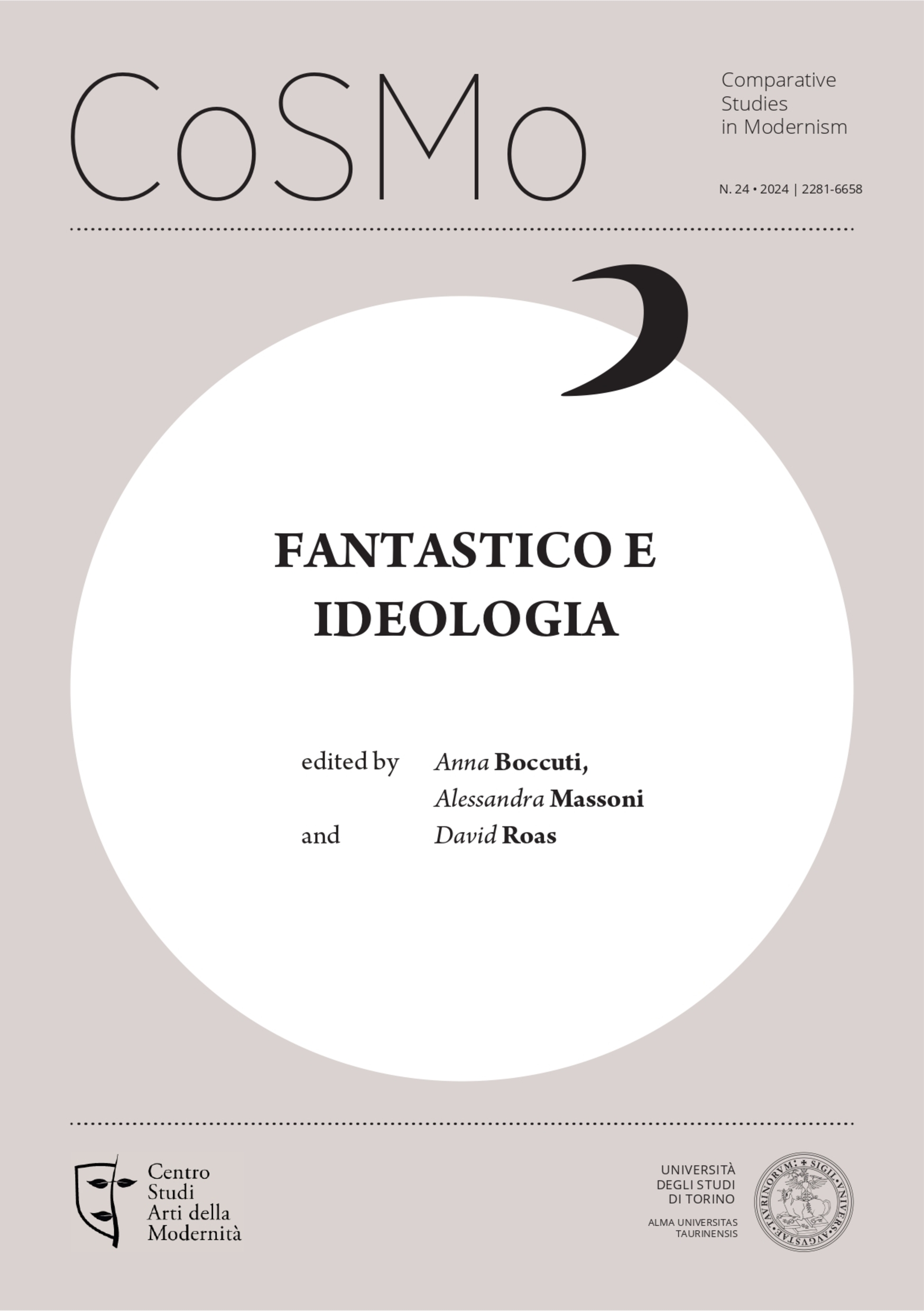Cervantes’s Captivity
Don Quixote in Dictatorship and Post-Dictatorship Argentine Theater
DOI:
https://doi.org/10.13135/2281-6658/10696Keywords:
Don Quixote, Cervantes, Argentine Theater, Argentine Dictatorship, CaptivityAbstract
The following article analyzes three theater pieces produced during the dictatorial and post-dictatorial periods in late 20th-Century Argentina: El acompañamiento (1981) by Carlos Gorostiza, ¡Ladran, Che! (1994) by Carlos Alsina, and La razón blindada (2005) by Aristides Vargas. The essay explores the way these plays rewrite and re-signify Cervantes’s Don Quixote as means to reflect upon topics like captivity, freedom, the disciplinary State (Foucault), and utopia. The appearance of Don Quijote in these plays—either as a character or an ideal—helps us understand the role of the fantastic as an artistic response and as an alternative to the horror engendered in the context of dictatorial regimes.
Downloads
Downloads
Published
Issue
Section
License
Authors keep the copyrights for their work and give the journal the work’s first publication copyright, which is at the same time licensed under a Creative Commons License – Attribution, which in turn allows other parties to share the work with an acknowledgement of the work's authorship and initial publication in this journal.
Content Licence

You are free to copy, distribute and transmit the work, and to adapt the work. You must attribute the work in the manner specified by the author or licensor (but not in any way that suggests that they endorse you or your use of the work).
Metadata licence

CoSMo published articles metadata are dedicated to the public domain by waiving all publisher's rights to the work worldwide under copyright law, including all related and neighboring rights, to the extent allowed by law.
You can copy, modify, distribute and perform the work, even for commercial purposes, all without asking permission.





